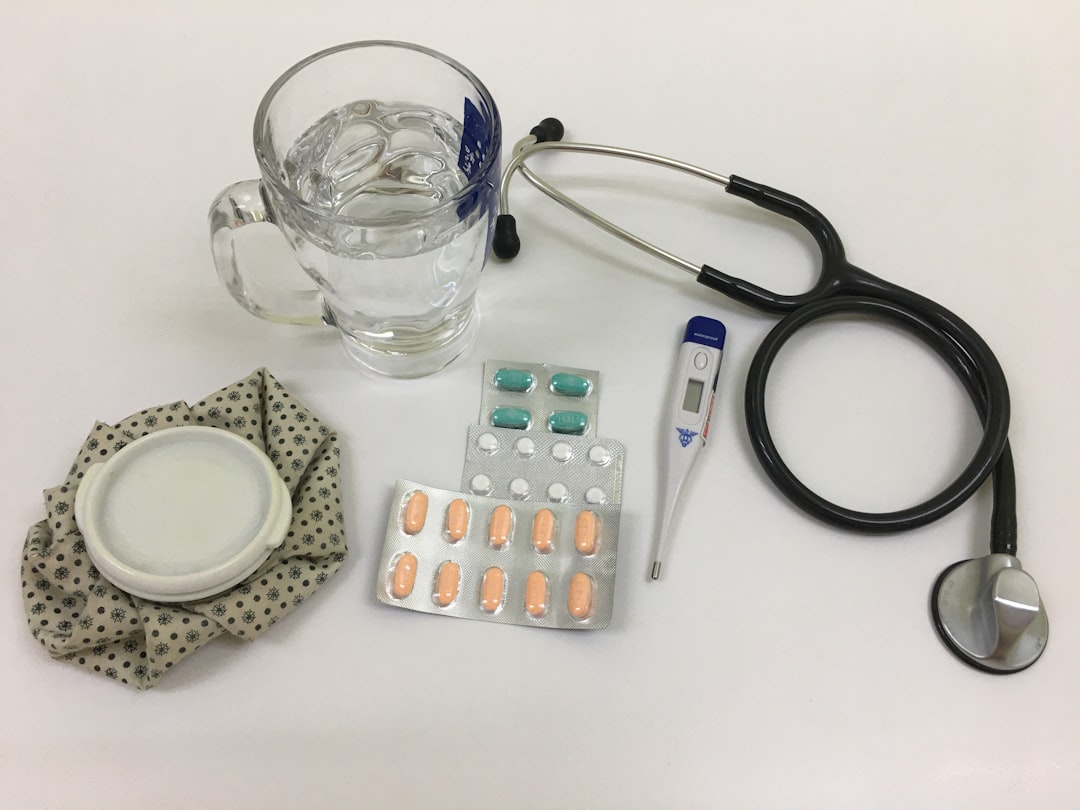ADHD, or Attention Deficit Hyperactivity Disorder, is a neurodevelopmental disorder that affects both children and adults. It is characterized by symptoms such as inattention, hyperactivity, and impulsivity. ADHD AF, or ADHD in females, presents differently than in males, making it often overlooked or misdiagnosed. Females with ADHD may exhibit more internalized symptoms, such as daydreaming, disorganization, and emotional dysregulation, which can lead to challenges in academic, professional, and personal settings. It is important to understand that ADHD AF is not a result of laziness or lack of intelligence, but rather a complex neurological condition that requires understanding and support.
ADHD AF can impact various aspects of a woman’s life, including her education, career, relationships, and overall well-being. It is crucial to recognize the unique challenges that females with ADHD face in order to provide appropriate support and interventions. By understanding the specific symptoms and experiences of ADHD AF, individuals, educators, employers, and healthcare professionals can work together to create a more inclusive and supportive environment for women with ADHD. This understanding can also help women with ADHD AF to feel validated and empowered to seek the help and resources they need to thrive.
Key Takeaways
- I. Understanding ADHD AF:
- ADHD AF is a subtype of ADHD that is characterized by impulsivity, hyperactivity, and inattentiveness.
- It can affect both children and adults, impacting their daily functioning and relationships.
- II. Recognizing the Unique Strengths of ADHD AF:
- People with ADHD AF often possess creativity, high energy levels, and the ability to think outside the box.
- They may excel in high-pressure situations and thrive in environments that require quick thinking and adaptability.
- III. Developing Effective Strategies for Managing ADHD AF:
- Creating a structured routine and utilizing organizational tools can help manage symptoms of ADHD AF.
- Regular exercise, mindfulness practices, and seeking professional support can also be beneficial in managing symptoms.
- IV. Navigating Challenges and Overcoming Obstacles:
- Challenges such as impulsivity, distractibility, and difficulty with time management can be addressed through specific strategies and accommodations.
- Building self-awareness and learning to advocate for one’s needs can help in overcoming obstacles associated with ADHD AF.
- V. Building a Supportive Network:
- Surrounding oneself with understanding and supportive individuals can provide a strong foundation for managing ADHD AF.
- Joining support groups, seeking therapy, and connecting with others who have similar experiences can offer valuable support.
- VI. Embracing ADHD AF in the Workplace:
- Open communication with employers and colleagues about ADHD AF can lead to accommodations and a better understanding of individual needs.
- Utilizing strengths such as creativity and adaptability can contribute to success in the workplace.
- VII. Celebrating Successes and Achievements:
- Recognizing and celebrating small victories can boost confidence and motivation for individuals with ADHD AF.
- Setting realistic goals and acknowledging progress is essential for maintaining a positive outlook.
Recognizing the Unique Strengths of ADHD AF:
While ADHD AF presents its own set of challenges, it is also important to recognize the unique strengths and talents that women with ADHD possess. Many females with ADHD are highly creative, intuitive, and empathetic individuals. They often have a strong ability to think outside the box, problem-solve, and multitask effectively. These qualities can be valuable assets in various settings, including the workplace, creative endeavors, and social relationships. By recognizing and celebrating these strengths, women with ADHD AF can build confidence and self-esteem, leading to greater success and fulfillment in their lives.
Additionally, many women with ADHD AF have a natural ability to hyperfocus on tasks that they are passionate about. This intense focus can lead to exceptional performance in areas of interest and can be harnessed to achieve great success in academic pursuits, careers, and personal goals. By acknowledging and nurturing these strengths, women with ADHD AF can leverage their unique abilities to overcome challenges and thrive in their endeavors. It is important for individuals with ADHD AF to embrace their strengths and use them as tools for personal growth and achievement.
Developing Effective Strategies for Managing ADHD AF:
Managing ADHD AF involves developing effective strategies to cope with symptoms and improve daily functioning. This may include implementing organizational tools and techniques to manage time, tasks, and responsibilities. Utilizing planners, calendars, reminders, and other organizational aids can help women with ADHD AF stay on track and reduce feelings of overwhelm. Additionally, breaking tasks into smaller, manageable steps can make them more achievable and less daunting.
Furthermore, developing healthy lifestyle habits such as regular exercise, adequate sleep, and a balanced diet can significantly impact symptoms of ADHD AF. Exercise has been shown to improve focus and attention while reducing impulsivity and hyperactivity. Adequate sleep is essential for cognitive function and emotional regulation. A balanced diet rich in nutrients can support brain health and overall well-being. By incorporating these lifestyle habits into their daily routine, women with ADHD AF can better manage their symptoms and improve their overall quality of life.
Navigating Challenges and Overcoming Obstacles:
| Challenges | Obstacles | Strategies |
|---|---|---|
| Financial constraints | Lack of resources | Budget optimization, seeking funding |
| Competitive market | Industry barriers | Differentiation, market research |
| Technological changes | Adapting to new technology | Training, innovation, partnerships |
Women with ADHD AF may face various challenges in their personal and professional lives. These challenges can include difficulties with time management, organization, maintaining relationships, and meeting expectations in academic or work settings. It is important for women with ADHD AF to identify these challenges and develop strategies to overcome them. This may involve seeking support from healthcare professionals, therapists, or coaches who specialize in ADHD management.
Additionally, building a strong support network of friends, family members, or support groups can provide valuable encouragement and understanding during challenging times. Seeking out mentors or role models who have successfully navigated similar challenges can also provide inspiration and guidance. By acknowledging their challenges and seeking support when needed, women with ADHD AF can develop resilience and adaptability in the face of obstacles.
Building a Supportive Network:
Building a supportive network is crucial for women with ADHD AF to thrive in all areas of their lives. This network may include friends, family members, mentors, healthcare professionals, therapists, support groups, or online communities. Having a supportive network can provide validation, understanding, encouragement, and practical assistance when needed. It can also offer a sense of belonging and connection that is essential for emotional well-being.
In addition to seeking support from others, women with ADHD AF can also benefit from learning self-advocacy skills. This involves effectively communicating their needs and seeking accommodations when necessary. By advocating for themselves, women with ADHD AF can ensure that they have the resources and support they need to succeed in academic or professional settings. Building a supportive network and developing self-advocacy skills can empower women with ADHD AF to navigate challenges with confidence and resilience.
Embracing ADHD AF in the Workplace:

Navigating the workplace with ADHD AF can present unique challenges for women. It is important for employers and colleagues to understand the specific needs of individuals with ADHD AF in order to create a supportive work environment. This may involve providing accommodations such as flexible work schedules, clear communication strategies, or organizational tools to help manage tasks effectively.
Women with ADHD AF can also benefit from developing strategies to enhance their productivity and focus in the workplace. This may include breaking tasks into smaller steps, utilizing time management techniques, minimizing distractions, and seeking out work environments that align with their strengths and interests. By embracing their unique abilities and advocating for their needs in the workplace, women with ADHD AF can contribute valuable perspectives and talents to their professional endeavors.
Celebrating Successes and Achievements:
It is important for women with ADHD AF to celebrate their successes and achievements along their journey. Recognizing their progress and accomplishments can boost self-esteem and motivation. Whether it’s completing a project at work, earning a degree, maintaining a healthy relationship, or simply managing daily tasks effectively, each success is a testament to their resilience and determination.
Celebrating successes can also serve as a reminder of the unique strengths that women with ADHD AF possess. By acknowledging their abilities and accomplishments, they can build confidence and a positive self-image. Additionally, sharing their successes with their supportive network can provide encouragement and inspiration to others facing similar challenges. By celebrating successes and achievements, women with ADHD AF can cultivate a sense of pride in their abilities and continue to strive for personal growth and fulfillment.
If you’re looking for more information on ADHD, you might find it helpful to check out this article on ADHD testing. The article discusses the importance of early detection and diagnosis of ADHD, and how it can positively impact a person’s life. You can read the full article here.
FAQs
What is ADHD?
ADHD stands for Attention Deficit Hyperactivity Disorder. It is a neurodevelopmental disorder that affects both children and adults. It is characterized by symptoms such as inattention, hyperactivity, and impulsivity.
What are the symptoms of ADHD?
The symptoms of ADHD can vary depending on the individual, but common symptoms include difficulty paying attention, impulsivity, hyperactivity, disorganization, forgetfulness, and difficulty staying on task.
How is ADHD diagnosed?
ADHD is typically diagnosed by a healthcare professional, such as a psychiatrist or psychologist, who will conduct a thorough evaluation. This evaluation may include a review of the individual’s medical history, a physical exam, and various psychological tests.
What are the treatment options for ADHD?
Treatment for ADHD often includes a combination of medication, therapy, and lifestyle changes. Stimulant medications such as Adderall and Ritalin are commonly prescribed to help manage symptoms. Behavioral therapy and counseling can also be beneficial in teaching individuals coping strategies and improving their organizational skills.
Can ADHD be managed effectively?
Yes, with the right treatment and support, many individuals with ADHD are able to manage their symptoms effectively. It is important for individuals with ADHD to work closely with healthcare professionals to develop a comprehensive treatment plan that addresses their specific needs.
What are some common misconceptions about ADHD?
Some common misconceptions about ADHD include the belief that it is just a childhood disorder, that it is simply a result of poor parenting, or that it is overdiagnosed. In reality, ADHD is a complex neurodevelopmental disorder that can have a significant impact on an individual’s daily life.














